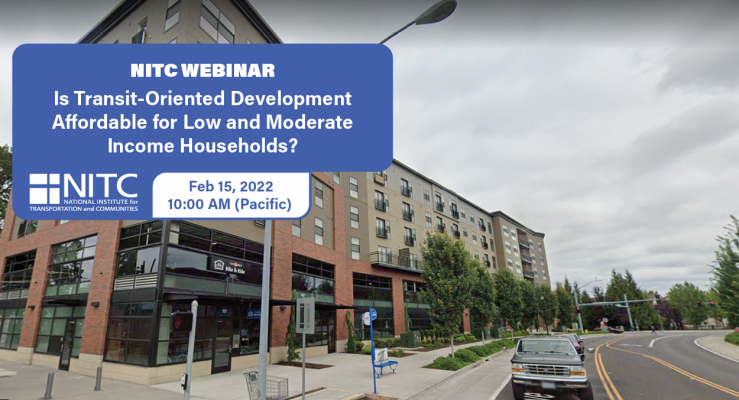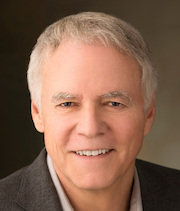
PRESENTATION ARCHIVE
OVERVIEW
Transportation and land use planning, as a field, is shifting away from segregated uses connected by highways and streets to more compact, mixed-use developments connected by high-quality transit. This new paradigm has brought special attention to transit-oriented developments (TOD), which are sometimes touted as being among the most affordable, efficient places to live. But how affordable are they, and who has the power to effect change? This study examines housing costs for households living in TODs.
KEY LEARNING OUTCOMES
- Learn how many TODs there are currently in the U.S. and what methodology was used to identify them.
- Learn what share of housing in TODs is affordable, what are the relative shares of designated versus naturally occurring affordable units and whether the level of affordability is the same for families of different sizes.
- Learn what measures were used by TOD developers or jurisdictions to provide affordable housing, and whether all measures result in similar levels of affordability.
THE RESEARCH
This webinar is based on a study funded by the National Institute for Transportation and Communities (NITC) and conducted at the University of Utah. Read more about the research: Is Transit-Oriented Development Affordable for Low and Moderate Income Households?
SPEAKERS
Reid Ewing, University of Utah
Reid Ewing is a Distinguished Professor of City and Metropolitan Planning at the University of Utah, associate editor of the Journal of the American Planning Association, and columnist for Planning magazine. His 10 books include Pedestrian and Transit-Oriented Design, co-published by the Urban Land Institute and American Planning Association; Growing Cooler: Evidence of Urban Development and Climate Change, published by the Urban Land Institute; and Best Development Practices, listed by the American Planning Association (APA) as one of the 100 “essential” books in planning over the past 100 years. Ewing’s research focuses on the built environment at five different scales and its impacts on quality of life. He has studied the built environment at scales ranging from the individual block and pedestrian activity, to the MXD and internal capture, to the metropolitan region and mode shares.Justyna Kaniewska, University of Utah
Justyna Kaniewska is a second year student in the Master of City and Metropolitan Planning program at the University of Utah. She graduated from Mount Holyoke College and holds an MBA degree from INSEAD. She has experience of working both as a business management consultant for McKinsey & Company and an independent developer. She is originally from Poland but worked on projects in Latvia, Czech Republic (Brno and Prague), Italy (Milan and Bologna), Singapore, France (Paris), Romania (Sibiu and Bucharest), and Israel (Tel Aviv). She plans to enter a Ph.D. program next fall.
PROFESSIONAL DEVELOPMENT
This 60-minute webinar is eligible for 1 hour of professional development credit for AICP (see our provider summary). We provide an electronic attendance certificate for other types of certification maintenance.
LEARN MORE
Sign up for our newsletter to get updates on our events.
Photo courtesy of Google Streetview
This webinar is hosted by the Transportation Research and Education Center (TREC) at Portland State University. The research was funded by the Summit Foundation and the National Institute for Transportation and Communities (NITC), a program of TREC and one of five U.S. Department of Transportation national university transportation centers. The NITC program is a Portland State-led partnership with the University of Oregon, Oregon Institute of Technology, University of Utah and new partners University of Arizona and University of Texas at Arlington. We pursue our theme — improving mobility of people and goods to build strong communities — through research, education and technology transfer.

